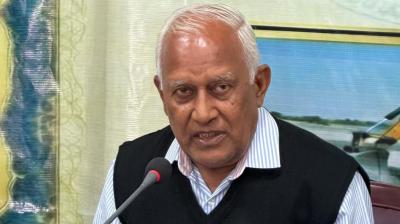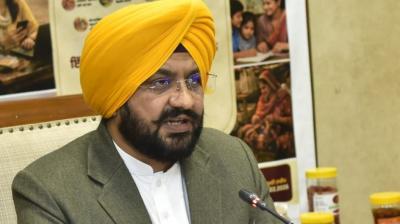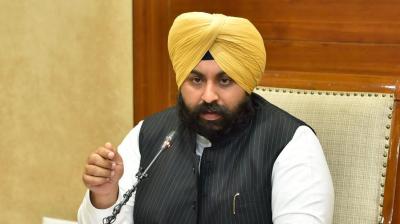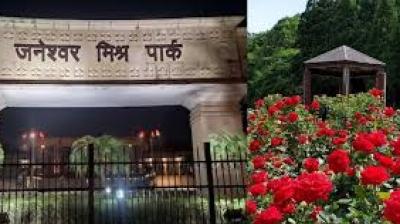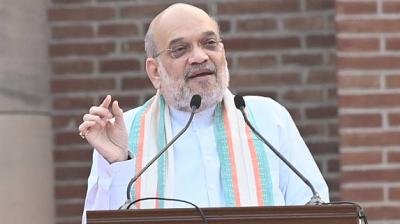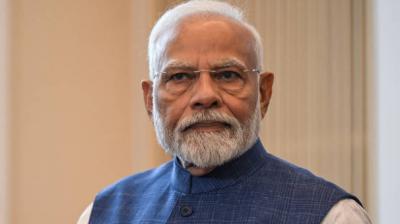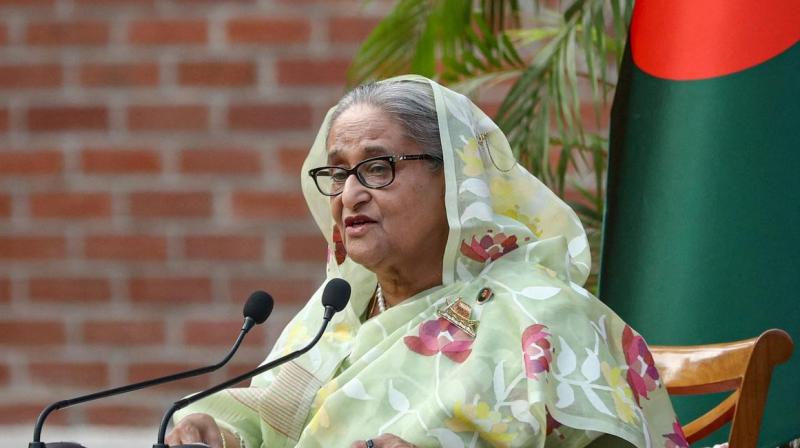
The ICT found Sheikh Hasina guilty of five charges.
The International Crimes Tribunal (ICT) of Bangladesh has convicted the country’s ousted Prime Minister Sheikh Hasina Wajed and former National Home Minister Asaduzzaman Khan Kamal of ‘crimes against humanity’ and sentenced them both to death. The third main accused in the same case and former IG (Police) of Dhaka, Chaudhry Abdullah Al-Mamun, was also convicted of the above crimes but was not sentenced to death on the ground that he had chosen to be a witness under oath.
Therefore, he has been sentenced to only five years in prison. It is no exaggeration to say that the entire trial was a travesty of justice. Therefore, the sentence given to Sheikh Hasina or Asaduzzaman Kamal is also unjust. The United Nations Human Rights Commission (UNHRC) is of the opinion that Sheikh Hasina is not innocent, but the death sentence is unjust. Experts in law and justice know that International Criminal Tribunals (ICTs) are not based on judges or lawyers from any one country. They must have at least one judge from other countries.
Similarly, defendants (i.e. accused) should also be free to hire a lawyer from another country so that that lawyer can represent his client without fear of retaliation from the government of the country in which the case is being tried. The Muhammad Yunus government of Bangladesh has not shown any interest in paying attention to such legal nuances. The lawyer provided by the government to defend Sheikh Hasina, instead of showing his sense of duty towards his profession, chose to side with the government. Neither the government witnesses were cross-examined nor were any witnesses in Sheikh Hasina’s favor presented. Therefore, at every stage of the trial, vindictiveness prevailed; the final decision itself was bound to be the product of vindictiveness. It was also welcomed by the vindictive, Hasina’s supporters were made victims of violence.
There is no doubt that Sheikh Hasina should have been tried. The atrocities and torture that were committed against anti-government protesters in the capital Dhaka and other parts of Bangladesh for a month before she fled Bangladesh on August 5 last year and sought refuge in India were both undemocratic and inhumane. According to the UNHC, around 1,400 people were killed in police firing and other incidents of government violence during anti-government protests. Independent experts have been calling this figure a ‘fabrication’. They do not believe the death toll to be more than 142. Yes, the number of injured is certainly said to be around 6,000. Even before such protests, Sheikh Hasina had been wreaking havoc on her political opponents by adopting an authoritarian attitude for 12 years. Her main target was Begum Khaleda Zia’s Bangladesh Nationalist Party (BNP). Its entire leadership was in jail. It was only natural for anger to arise and be organized against this kind of brutality. The intensity of this public anger forced Sheikh Hasina to flee the country.
The ICT found Sheikh Hasina guilty of five charges. Of these, she was sentenced to two. Both were related to the deaths of six students each in two separate incidents. One carried a death sentence and the other a life sentence until natural death. The ICT also ordered the seizure and auctioning of the properties of the three accused, including Hasina, and the distribution of the auction proceeds among the families of the victims of government repression. Despite such orders, the incidents of mob violence in Dhaka and elsewhere show that the interim government led by Muhammad Yunus is not capable of maintaining law and order.
Steps such as maintaining the ban on Sheikh Hasina’s party, the Awami League, and depriving it of participating in the elections due in February next year show that Sheikh Hasina’s opponents still fear the organizational strength of the Awami League. However, the ICT The decision of the ICC has certainly increased the headache of the Indian government. Sheikh Hasina is in Indian asylum. The Bangladesh government had earlier also sought her extradition. Now in the light of the ICT decision, it has been sought again. The Indian government has maintained silence on this demand. The comment of the Ministry of External Affairs is limited to ‘the events inside Bangladesh are being monitored’. In the current situation, silence is the best solution. Any further step should be taken only after the elections to the Bangladesh National Assembly (National Assembly) to be held in February 2026.



